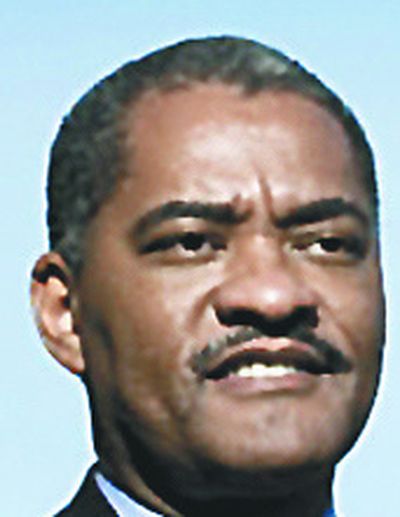WSU med school program would partner with hospitals

Faced essentially with an all-or-nothing ultimatum, Washington State University President Elson Floyd said Thursday he was given no choice but to part ways with the University of Washington over a shared physician training program in order to pursue a new Spokane-based medical school.
“The University of Washington was pretty clear in telling me that they needed 100 percent commitment and engagement and they felt that because of our desire to have a medical school that we were not fully committed to the” joint program, Floyd said during a presentation at the Spokane Club to the downtown Rotary Club. “I believe the (joint) program is important. It was our recommendation for WSU to participate in both.”
Floyd’s comments came less than a week after the state’s two leading universities announced they were breaking off the partnership and that each would pursue its own vision of how best to meet Washington’s need for more doctors, replacing months of sparring for control over expanding medical education in Spokane with a new scramble for individual legislative backing.
Although the UW dislikes the term “ultimatum,” it acknowledged Thursday that it wanted WSU to make an undivided commitment to the aggressive expansion of the physician training partnership at Spokane’s Riverpoint campus.
“It was a conversation that was, ‘Look, we know what a haul that is’ ” to establish and run a medical school, said University of Washington spokesman Norm Arkans. “It’s a huge undertaking … and we need a partner that is 100 percent committed to us.”
The UW said it’s pushing to double the number of medical students in Spokane to 320 per year – 80 per class – by 2016 and wants to expand to 120 per class after that. It also promised to give WSU a greater role in admissions and faculty selection and to dedicate research funding to the Spokane site, hire a local dean to oversee development and give the program a unique brand.
But the negotiations failed and each university agreed to go its own way.
Currently, the state’s only public medical school is operated by the University of Washington, which also trains doctors for Wyoming, Alaska, Montana and Idaho under a program that until last week was operated in partnership with WSU.
The UW has pledged to continue pushing for expansion of the Spokane program while WSU pursues its own medical school.
It will be up to the Legislature to decide whether to pay for both approaches or to choose between them.
The model WSU proposes for its medical school relies on forging partnerships with existing hospitals in various communities rather than building a new teaching hospital where students train, which is the more traditional approach. Floyd describes it as a less expensive option and said that with a potentially worsening physician shortage, particularly in rural Washington state, there’s a need for both models here.
“We can do that through a two-medical school protocol looking at a slightly different way of engaging our hospitals, slightly different way of engaging our training,” he said. “But that’s very consistent with the direction our nation is going.”